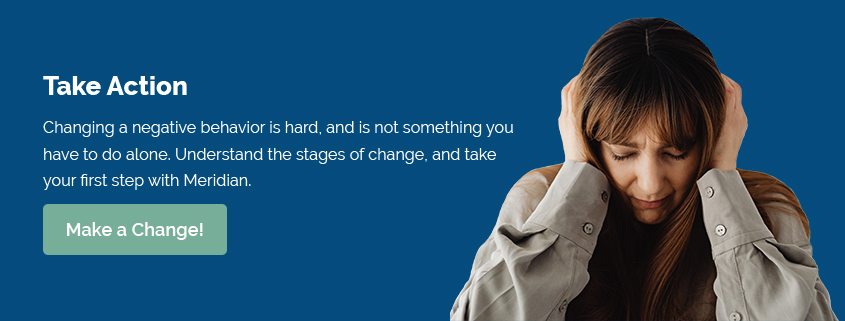Different Types of Addiction: What You Need to Know and How to Seek Help
Addiction is a complex disease. And, unfortunately, there are still societal stigmas associated with it that often prevent people from seeking help.
It’s important for people to know that there is no shame in seeking help for addiction disorders; they are mental health issues that impact both physical and mental well-being.
While many people associate addiction with illegal substances, the disease is not limited to drug abuse; there are several types of addiction (and in certain cases, those affected may not even realize there is a problem).
If you or a loved one are suffering from any type of addiction, a mental health professional can help you seek the right addiction treatment.
Different Types of Addiction
There are two main types of addiction: substance addiction and behavioral addiction.
Over the years, our understanding of mental health issues has grown. It’s now known that addiction is not only associated with substance abuse and that many behaviors can become addictive, as well.
Understanding how each type of addiction works can help those who struggle with substance abuse and addictive behaviors so that they can seek the help needed for recovery.
Substance Addiction
Substance addiction is a chronic mental illness where a person becomes physically dependent and mentally addicted to the use of a particular substance. According to the Substance Abuse and Mental Health Services Administration (SAMHSA), 46.3 million people in the United States met the criteria for substance use disorder as outlined in the Diagnostic and Statistical Manual of Mental Disorders (DSM-5).
Those suffering from substance use disorders continue to use a substance despite the negative consequences for themselves and their family members. Withdrawal symptoms can be extremely intense when the substance use stops, making addiction treatment difficult without the proper resources.
Addiction is a disease influenced by many factors outside of a person’s control. Those who suffer from addiction often have a dual diagnosis of another mental illness, such as depression, anxiety, PTSD, or impulse control disorder.
How Substance Addiction Works
When it comes to substance addiction, a person develops a physical and mental dependency on the substance they are using.
This reliance happens due to the chemical reactions in the brain caused by the substance — often a release of dopamine.
This release of dopamine triggers the brain’s reward system, and the user associates the substance with pleasure, causing a desire to use despite negative consequences or dangers to their health.
Over time, the user’s brain becomes adjusted to the extra dopamine levels, which leads to an increased tolerance. As a result, that person needs to use more of the drug to get the same result.
Due to the substances’ ability to change a user’s brain chemistry, physical dependence can develop. And, then when substance use stops, it causes physical withdrawal symptoms.
Physical withdrawal symptoms can include the following:
-
-
- Sweating
- Aches and pains
- Nausea and vomiting
- Cravings
- Shaking
- Changes in mood, depression, irritability, and anxiety
-
Some physical withdrawal symptoms are so severe that they need to be monitored by a healthcare professional (it’s important to keep in mind that the detox process can be dangerous). Inpatient treatment programs offer 24/7 medical assistance to help overcome physical withdrawal symptoms.
Those suffering from substance use disorders also develop a psychological dependency on the substance. However, psychological dependence is not caused by a physical reaction to the substance. Instead, psychological dependence is formed by the positive associations, beliefs, and habits built around the substance.
Unfortunately, when it comes to substance addiction, physical and psychological withdrawal symptoms can be co-occurring. The pleasure associated with using the substance and the pain associated with stopping use makes substance abuse a compulsive behavior that is hard to break free from.
Common Substance Addictions
Substance addiction is more common than you might think – over 20 million Americans are currently affected by substance use disorders – and it is a serious mental health disorder that affects those that suffer from it (as well as their family members) daily.
Below are the most common types of substance addictions:
-
-
- Alcohol addiction
- Nicotine and tobacco addiction
- Prescription drug addiction, such as opioids and Adderall
- Heroin addiction
- Stimulants addiction, including illegal substances like methamphetamines, amphetamines, and cocaine
- PCP addiction
- MDMA addiction
-
Alcohol abuse is especially common due to how available it is, and according to the SAMHSA, alcohol is the most commonly abused substance in America. Addiction recovery from alcohol also comes with intense physical withdrawal symptoms, so an inpatient detox with the supervision of healthcare professionals can make addiction recovery more successful.
Behavioral Addictions
Behavioral addictions are different from substance addictions; it is not a substance that the person becomes addicted to, but instead, an action.
Behavioral addiction can be hard to recognize because addiction is so commonly associated with drug use. However, behavioral addictions also have negative consequences, affecting those who develop them, along with their family members.
How Behavioral Addiction Works
With behavioral addictions, neurotransmitters are involved (as they are with substance addictions), forming the addiction itself. The behavior releases dopamine, and eventually, the action gets associated with pleasure causing the desire to repeat it.
Behavioral addictions, however, do not develop a physical dependency the way that substance abuse disorders do.
Those who suffer from a behavioral addiction develop a psychological dependency on the action, which means they may go through psychological withdrawal symptoms. Psychological withdrawal symptoms vary widely from person to person in terms of what they experience and how intense they are.
These are some of the most common psychological withdrawal symptoms:
-
-
- Irritability
- Changes in mood
- Long-term depression
- Grief
- Loss of control
-
In many cases, addiction takes up a major part of a person’s life, and can eventually get associated as a part of his or her being. It is not uncommon for someone in addiction recovery to mourn the loss of either the substance or activity that they were addicted to.
This can lead to intense feelings of grief when someone seeks out addiction treatment. It is important to address the mental health conditions that follow addiction recovery in order to reduce the chance of relapse.
Common Behavioral Addictions
Activities that produce high levels of dopamine carry a risk of addiction. While not everyone who engages in the activity may become addicted, it is more common than you might realize. Below are some of the most common behavioral addiction disorders:
-
-
- Gambling addictions
- Kleptomania (stealing)
- Internet addiction, including social media addiction
- Shopping addiction
- Food addiction
- Video game addiction
- Sex addiction
-
It is important to recognize the signs of addiction and have an understanding of when it’s best to reach out for help. If you or a loved one feel a compulsion or need to do a specific activity and notice severe changes in your mood when you can not do it, reaching out to a licensed healthcare professional for an assessment can help determine if you need addiction treatment.
Finding Addiction Treatment
Both behavioral addictions and substance addictions are incredibly difficult to break alone. Addiction treatment programs significantly reduce the risk of relapse by providing the right support and resources for the individual.
There are several different treatment options available, such as inpatient treatment centers, outpatient treatment facilities, individual counseling, family therapy, and support groups.
Addiction Recovery Is Possible
You don’t have to face addiction recovery alone. The knowledgeable, caring staff at Meridian HealthCare are here for you. If you or a family member are suffering from addiction and are seeking treatment, hope is available. Call us today to find yours.






